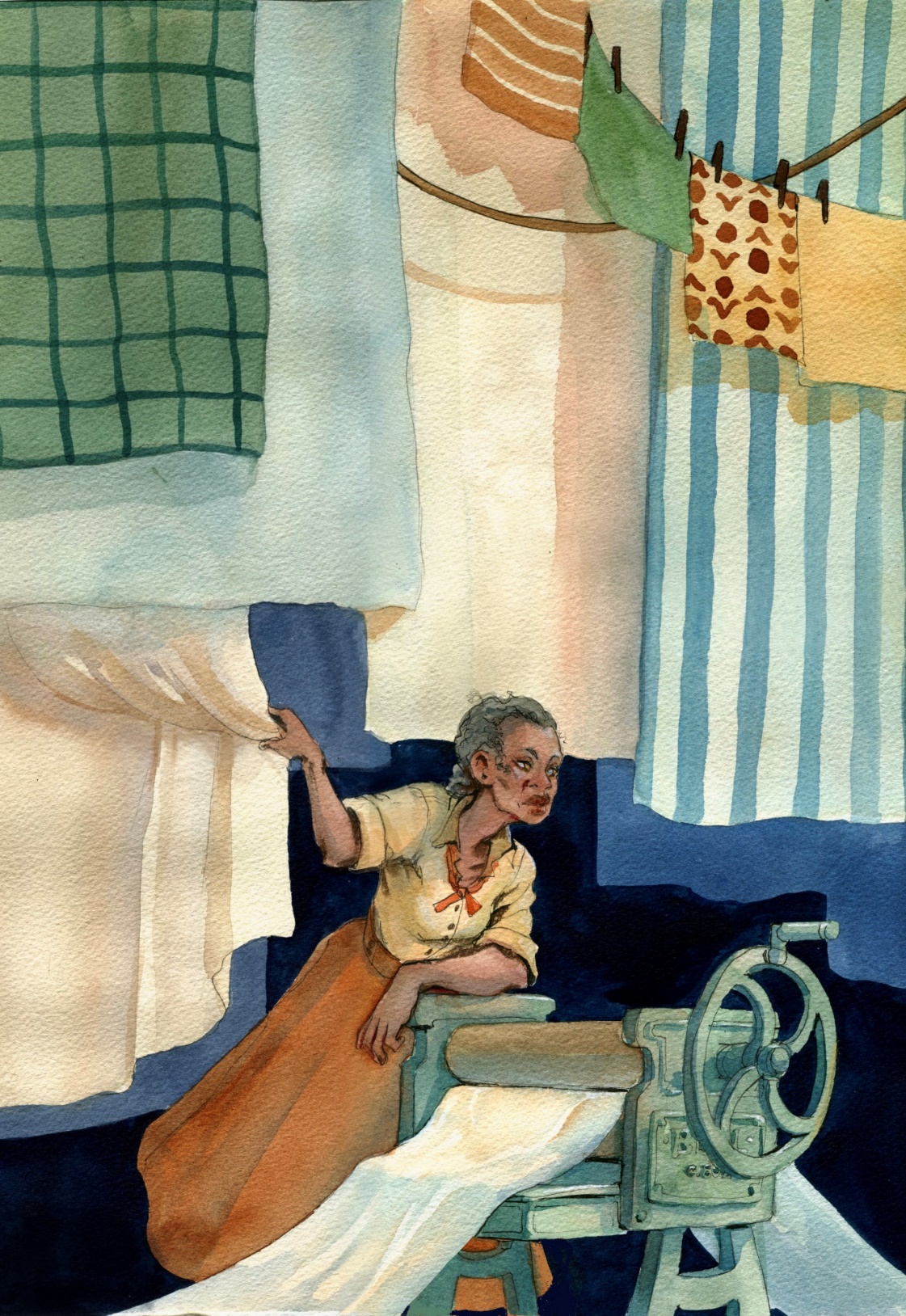Chapter 10:
Wash House
Moth woke up, staring at the cracked plaster of the ceiling.
Disoriented, she sat up in bed and looked out the small square window at rolling hills of rooftops, and it jolted her awake.
She was in Magden.
Jumping out of bed, she hurried to the window and opened it so she could see the rooftops washed in early morning light. It was quiet and clean, in that moment, and Moth lingered at the window to watch the morning seep in, to breathe in all the colors and sounds.
Moth got dressed, making sure her clothes was crisp but not too nice, and her apron clean and tied securely around her waist. She tugged her shoes on and knotted them with triple knots. She was ready for work; today she started as a washerwoman, today Tully would show her how to earn a wage.
She hurried out of her room to the rest of the cold house. Slowing down so as not to wake Aunt Violet, Moth tiptoed around the thin-walled and echoing house, eased down the two flights of stairs, wincing with every groan of the wood.
When she finally got to the first floor, she heard someone in the kitchen, and entered it to find Salvia making simple meals and putting them in lunch pails.
“When did you get up?” asked Moth, surprised
“An hour ago.” Salvia rubbed her eyes and yawned, tendrils of her hair already worming out of her bun. “It’s yesterday’s meal, so don’t get excited.”
